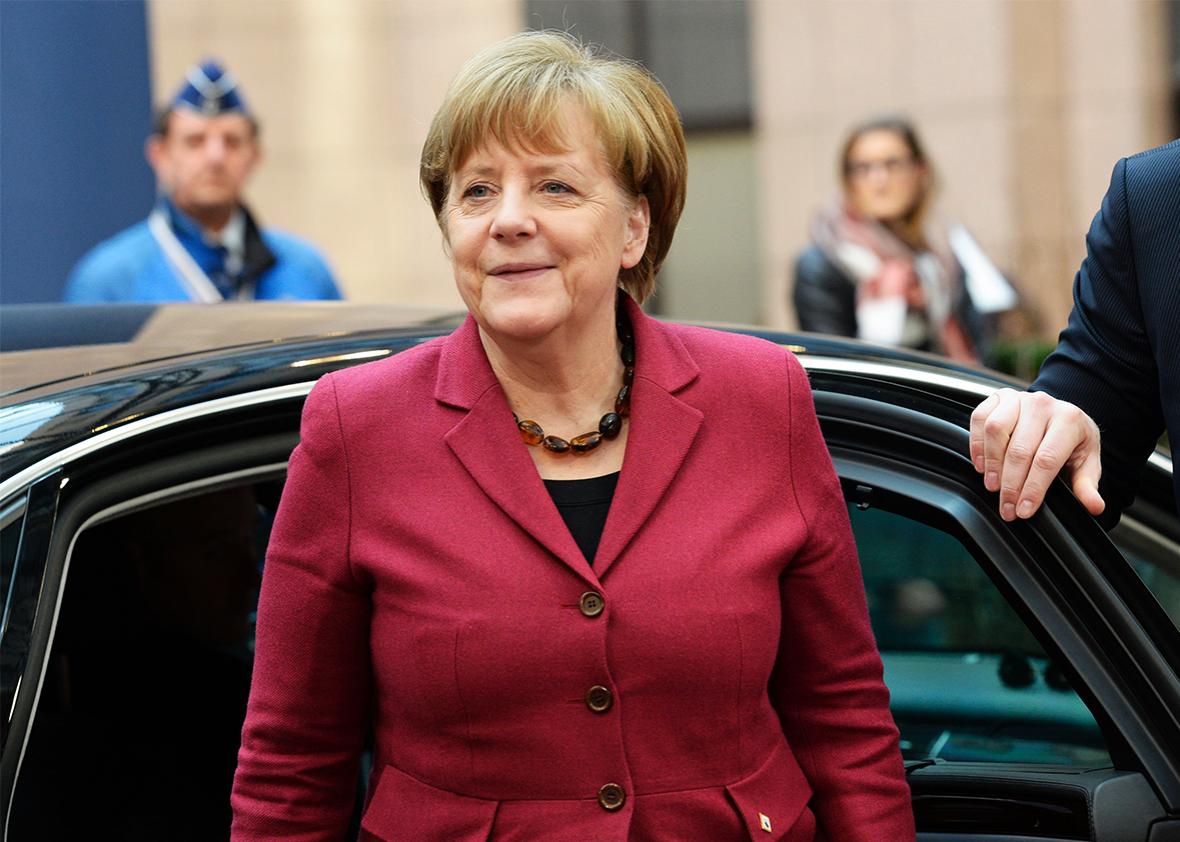BERLIN—The Daily Mail wrote of the “return of the far-right” and Chancellor Angela Merkel’s “poisonous legacy.” The Daily Telegraph trumpeted “Germany’s rejection of the pro-immigration establishment.” Le Monde wrote of “Merkel’s defeat.” After Germany’s regional elections last weekend, article after article, all across Europe, focused on the Alternative for Germany, the far-right party that hit a high of 24 percent support in Saxony, as well as victories for the Social Democrats and Greens in two of three state elections.
If you’d read only the foreign press, you might think that Germany was in revolt, that Merkel was finished, that the brownshirts were marching. You’d have been surprised, therefore, by a dinner given a few days ago by a distinguished German foundation. The occasion was a political conference; the food, catered by a small German charity, was a surprise. The chefs were refugees—from Afghanistan, Syria and Nigeria—and each of them said a few words before the meal. Solemnly, the mostly German guests listened, applauded, and then stiffly helped themselves to Afghan rice and African vegetables. In their suits and ties, they poured beer from a brewery that, the hosts assured us, donated a portion of its profits to the refugees, too.
Afterward, one of the guests, a politician from a large German city, asked me what I’d thought of the evening. I told him that it all seemed very earnest and well-meaning, and a fine example of what the Germans call their Willkommenskultur, the “welcome culture” that promotes the acceptance and integration of refugees. But it also seemed rather awkward. Was it real? He shrugged. He couldn’t speak for everyone. But it was true that his father, a retired judge, was now teaching German to refugees in a small community near their home. And an acquaintance had organized an “invite a refugee to dinner” program, which was designed to make the new influx of foreigners seem less foreign.
Nor was his experience unusual: In recent months, Germans from all kinds of political backgrounds have had dinner with refugees, put up posters for refugees, organized soccer matches for refugees. And although some 800,000 people will arrive in Germany this year seeking asylum, Germans have actually just voted to support this policy. Look at the story behind the headlines: While it’s true that Merkel’s Christian Democrats did lose in two out of three states, they lost to Social Democrats and Greens, both parties that support her refugee policy. Given the scale and speed of the refugee march toward Europe, given the emotive photographs of people crossing Balkan rivers to get to Germany, and given the widespread, if often unspoken, fear of Islamic terrorism, the real story is rather extraordinary: Actually, Chancellor Merkel’s rule is right now not in doubt.
In truth, the French and British headlines reflect a different problem: The Wilkommenskultur in Germany does not have an equivalent in France or Britain, or anywhere else in Europe. In Hungary, the prime minister openly agitates against refugees, even though his country has hardly any. In the Netherlands, the far-right Party for Freedom is surging in the polls. All across the continent, anti-immigration parties and groups are destabilizing politics, even in countries that have no refugees at all. When the Daily Mail writes of Angela Merkel’s “poisonous legacy,” it’s talking about its own fear of immigration, not hers.
The crisis facing Merkel is not, therefore, the one that most headline writers imagine: Her country still backs her. But the rest of the continent doesn’t. Not for the first time, she is confronted with a deep gap between the Germans and everyone else. The test for her now is not at home but abroad: Can she think like a European leader rather than just a German one, and find a solution that suits everyone else?
Almost all of those on offer are unpalatable or impossible. Germany simply will not lead a European army, invade Syria, and stop the war. A likely deal to send refugees from Greece back to Turkey and support them there will be ugly: This Turkish government happily violates the rights of its own citizens and won’t treat refugees any better. But the lesson of the recent elections—and the coverage of the recent elections—eliminates the status quo: However well-meaning, Germany cannot continue to “welcome” refugees indefinitely and assume that others will do the same.
Read more of Slate’s coverage of the European refugee crisis.
